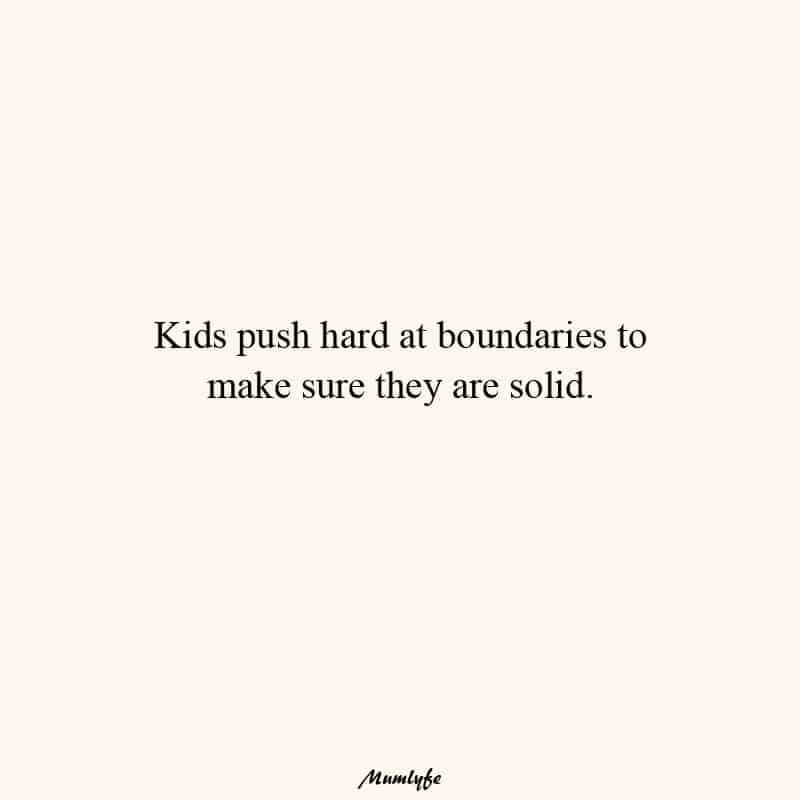There are thousands (millions?) of books written about parenting, and definitely millions of websites (this one is number 902,145). They want to help us parent from pre-conception to pregnancy to newborn, toddler, preschooler, school age, tweens, teens and beyond. But really, it all boils down to the same thing: being a consistent parent is critical.
If you’re not a consistent parent, it really doesn’t matter what else you’re doing. You could be taking a strengths-based or a my-way-or-the-highway approach. Be a tiger mom or a lawnmower. Parent around the clock 24/7, or parent in a more FIFO manner. None of it matters if you’re not consistent.
Why is consistency so important?
When the kids are young, consistency reinforces behaviour and helps them learn. When they get older, being a consistent parent matters because it develops and maintains trust between you. A steady, predictable pattern of behaviour (ie, consistency) means your kid knows you’ll do what you said you were going to do. Knowing they can rely on you is so critical when life is so confusing in every other aspect. They know that no matter what else is going on, their parent:
- will be there when you said you were going to be there.
- is steady in your values and won’t just change your mind on a whim.
- has reactions that are predictable and specific to the situation.
Over time, consistency builds safety as well as trust. Your kid knows exactly where your boundaries are. They may choose to push those boundaries (hard and often), but they are confident that ultimately those boundaries hold fast. In other words, the structure and routine that a consistent parent brings is like a balm to the chaos inside an adolescent brain.

Another bonus of consistent parenting is that the repetition of your actions will reinforce your own values. That is, all the important life values you want to pass onto your kid. Parenting by our values makes it easier to stay consistent and say yes and no to the things that matter the most to us.
Inconsistency is confusing
We’ve all been there: you say no, your kid wears you down with the whining and the pleading, you end up saying yes just to end the torture. But only this time, you say. Of course, what your child hears is “no, wait, I mean, just whinge next time and I’ll give you what you want, yes”. Other ways we find ourselves being inconsistent are:
- Instilling a consequence for not doing chores one week, but nothing was said the week after.
- Letting your child talk to you rudely one day, but snapping about it the next.
- Insisting the homework gets done today, but not worrying about it for weeks afterwards.
We can also easily become inconsistent in the routine we have at home. Not sitting down for family dinner, not noticing what time our children go to bed, letting teens sleep until past midday. Every family will have their own way of scheduling their day, but having a consistent routine takes a heap of stress away. It also reinforces the importance of family – you make time to check in with each other. Hopefully the touchpoints you have throughout the day provide a welcome rhythm in your child’s daily life.
Why is it so hard?
The main trouble with being a consistent parent is… being a consistent parent. It’s so hard to stay on track with rigid predictability. Especially when our own lives can be tiring and stressful. It’s a lot easier to ignore our children’s protests when we’ve had a good night’s sleep and an easy day ourselves.
It’s also hard because we know that sometimes being flexible is actually the better choice. Our kids are older now and we know they deserve the space to ‘argue their case’. It’s not enough for us to be black and white and dismiss their own opinions. We need to make time to listen and give them a voice.
Put together, these two factors make being a consistent parent super hard.

Being consistent about the right things
Which is why, as our kids grow older, it becomes more about the big picture. Being a consistent parent of older kids is about them knowing that there are certain things you simply won’t bend to. And using the things you’re happy to be flexible about as a balm for the things you’re not.
It helps to not have too many rules in the first place. Young kids need lots of structure and little rules to help keep their focus. Older kids just need you to be consistent about the important things. Set the rules, agree the consequences together, then make sure the rules are followed. Some of the rules you might set include:
- Bedtime and wake times
- Chores to do their bit around the house
- Tone of voice when speaking to the family
- Curfew on week nights and weekends
- Amount of time spent with friends versus at home
- Screen time
Of course, you can still be flexible with good reason. But state your reason and make sure they are aware that it’s a one-off or special occasion. Establishing this will be made much easier if you’ve agreed the rules and consequences together. And encourage your kid’s negotiation skills when they do want to plead for flexibility. Ask them to bring some good reasons and perhaps some actions they’ll do to ‘buy’ the extra privilege, etc.
Being consistent parents together
Of course, most of us don’t parent alone (and hats off to anyone who does). The other side of being a consistent parent is finding consistency across parents. This can feel like its own battle when you don’t necessarily agree on the ‘right’ way to parent. Firstly, remember that there isn’t actually a ‘right’ way to parent. There are only people and situations and lived experiences. Secondly, it helps to get together with your co-pilot and agree your values first, before you even consider setting any boundaries for your kids.
If you find you really can’t agree, it’s helpful to seek some family counselling. It’s that important. There’s no way you can bring all-important consistency to your child’s world if you’re not both on the same page. If counselling feels like a bridge too far, you might simply be able to agree to be the ‘lead parent’ in particular situations. A ‘you take curfew, I’ll take wake up’ kind of situation. Whatever works to present a united parenting front to your child will work.
Remember, our tweens and teens seek comfort and security from us in their very unpredictable world. The more steady and consistent we can be, the more comfort and calmness we can bring.
Feature image by Patricia Prudente; umbrella by J W

